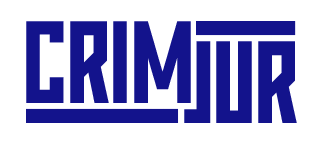 Speaker: Professor Malcolm Thorburn (Faculty of Law, University of Toronto)
Speaker: Professor Malcolm Thorburn (Faculty of Law, University of Toronto)
Abstract: What is the police’s defining mandate? Many of the traditional doctrines of the field are built on the assumption that it is a set of clearly defined duties just waiting to be carried out. However, sociologists of policing have known for at least the last fifty years that policing cannot be reduced to a set of well-defined duties. For although the police are empowered to enforce the law under certain conditions, it is rare that they are explicitly required to do so without qualification. Policing necessarily involves an enormous number of choices about when and how to use the various police powers, not only in the enforcement of the criminal law but for other reasons as well, such as the regulation of public space. In this presentation, I argue that the police mandate is nothing less than securing a shared conception of public order. It is this ideal of public order that should guide the police in their use of regulation of public space; and it is this conception of public order that should guide them in the exercise of their law enforcement powers, as well. But, I argue, this conception of public order has been left largely undefined by legislatures, leaving it up to individual police officers and police chiefs, on their own or in consultation with local community groups, to define it for themselves. Because the nature of public order is not in public view, citizen concerns about this issue are often diverted into areas where legislative action is possible, such as criminalization or sentencing policy. In a healthy liberal democracy, our shared conception of public order ought to be a matter of vigorous public debate, where different communities that embrace radically different conceptions of public order may construct a shared conception of public order though public debate ordered according to liberal requirements of public reason. I conclude with some thoughts on the whether this feasibility of such a project.
For those attending remotely, a Zoom link will be circulated before the session.
We will also be taking our speaker out to a restaurant dinner after the session. Could anyone who would like to join us please email Antje at alp22@cam.ac.uk in advance so we can give the restaurant accurate numbers. Alas, due to funding limitations, except for the speaker (of course) the dinner is on a “pay your own way” basis.

 Facebook
Facebook  X/Twitter
X/Twitter  Instagram
Instagram  YouTube
YouTube  Flickr
Flickr  LinkedIn
LinkedIn